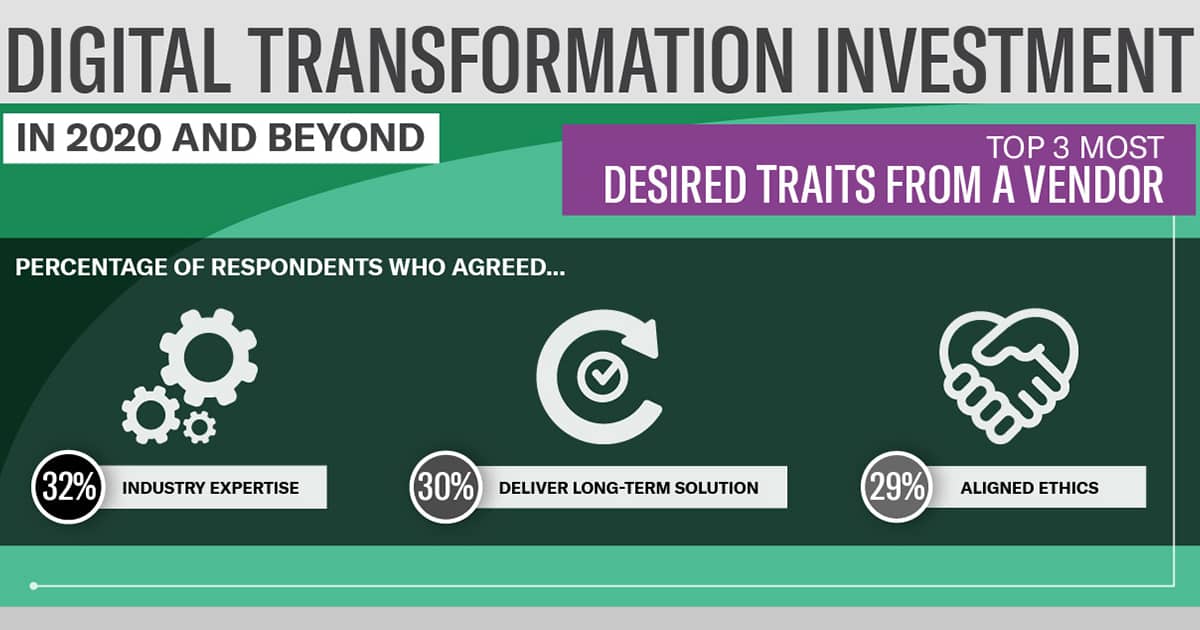As digital transformation spend is increasing around the world, businesses look for technology vendors whose ethics (29 percent) and culture (23 percent) alignwith their own. Interestingly, these considerations trump innovation in the ranking of desirable traits, demonstrating that having a similar cultural view of the world is playing a larger role in the selection process.
The top two vendor traits selected were specialist industry expertise (32 percent) and long-term solutions (30 percent).This is unsurprising, considering poor advice from vendors tops the list of why digital transformation projects fail at 37 percent,according to a research study from global enterprise applications company IFS.
Combined with poor vendor advice, technology selection teams, especially among businesses with revenues around the one-billion-dollar mark, are also being pressured by senior management to select well-known vendors even when they are a poor fit for the company’s actual needs.
Despite the uncertainties caused by the COVID-19 pandemic, a majority of companies are planning to increase their digital transformation spend, according to study findings earlier this year. With more businesses investing,with the aim of driving revenue post pandemic, thecost of failure is high and it’s becoming even more important to get investment right.
A resounding 48 percent of respondents at companies with revenues between 850–950 million US$ stated that they had been forced by senior management or the board of directors to use a well-known vendor that was a poor technological fit.
With a focus on previous experiences from past digital transformation projects, the study finds that budgets and timelines are two major pain points. Respondents indicate that failure in past projectsmakes management more reluctant to engage in future digital transformation efforts, with budget overruns topping the list of reasons management may put the brakes on critical projects at 28 percent and 26 percent saying blown timelines on past projects have made management more risk averse.
Further analysis of the findings shows that success of these digital transformation projects primarily hinges on finding the right technological fit (44 percent) and establishing clear objectives (50 percent). In fact, the top-three vendor trust factors highlighted by respondents are on-timedelivery (44 percent), support before, during and after project completion (41 percent), and delivering projects faster to value (35 percent).
Download a complimentary copy of Digital Transformation Investment in 2020 and Beyond: The Technology Equation.




